
Depending on repair needs and machine age and type, the cost to replace a heating element in a dryer can vary. Learn the average repair costs.
Don’t get burned by a fridge that can’t keep its cool


Freon leaks can lead to higher energy bills, bacteria growth on food, and premature wearing down of fridge components.
You should never attempt any repairs involving Freon on your own.
Repairing a fridge with a Freon leak costs $150 to $1,000.
Is your refrigerator acting up? If you’ve been noticing odd noises or spoiled-too-soon groceries, you might have a leak on your hands. Unfortunately, signs of a Freon leak in refrigerator units aren’t always as obvious as you’d like them to be, but these subtle flags should not be ignored. If you spot them early, you can save your fridge and your food.
When you have a Freon leak in your refrigerator, it’s more than just an inconvenience. Freon is a refrigerant that is critical in keeping your refrigerator cold. When Freon leaks, your appliance loses efficiency and has to work harder to keep things as cool as possible. This means higher energy bills, bacteria growth on your food, and even more wear and tear on your fridge’s compressor and other components.
Aside from the cost and inconvenience, Freon exposure comes with some health risks, especially when you’re dealing with large amounts. You might feel dizzy, nauseous, irritation in your eyes or throat, or experience headaches and shortness of breath.
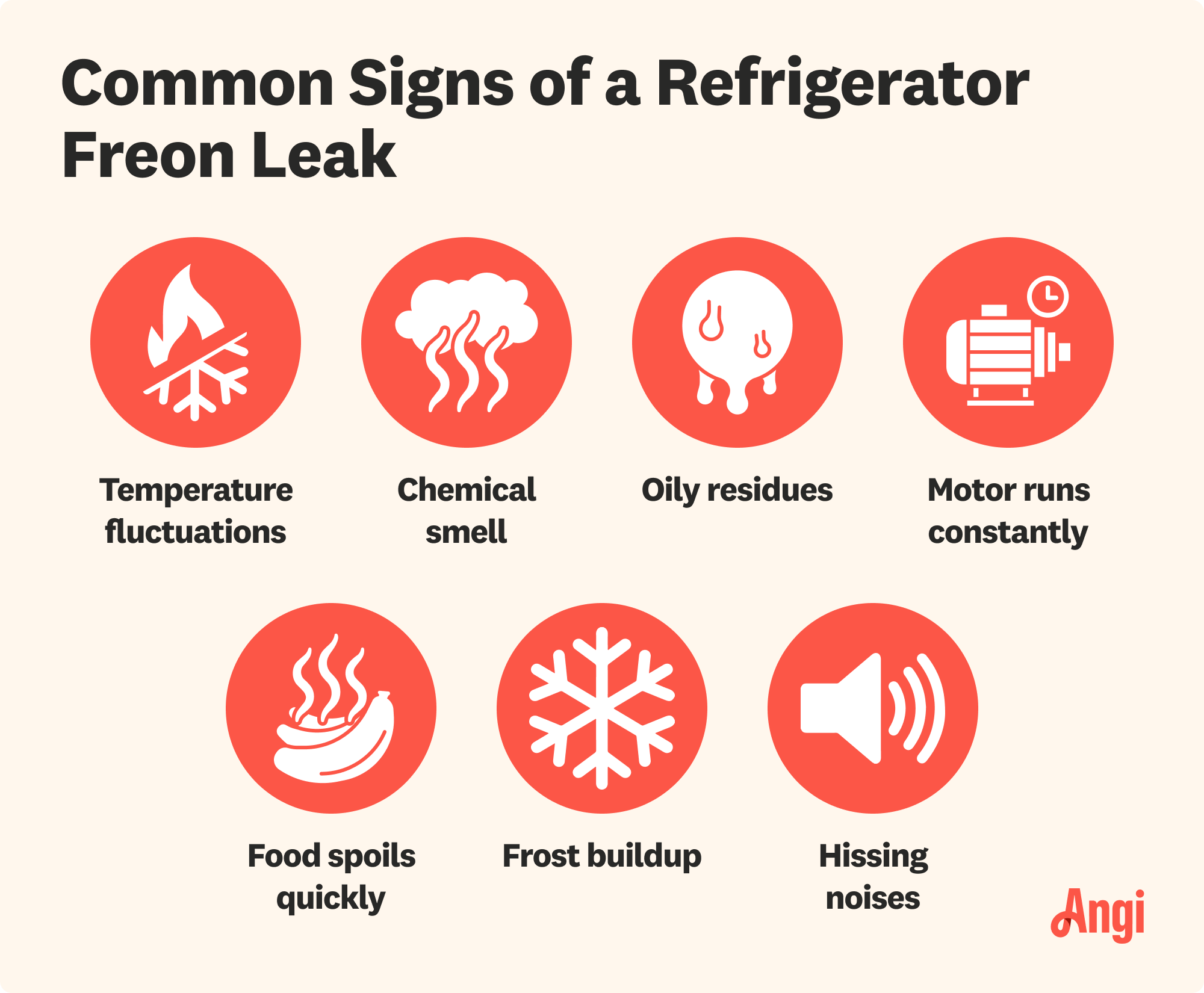
Refrigerant leaks often start small and worsen over time. That’s why it’s important to watch for red flags. If you notice one or more of these signs, your refrigerator may have a Freon leak that a professional should address.
Inconsistent cooling is one of the most common signs of a Freon leak in a refrigerator. Maybe you notice that your fridge feels cool one day and warm the next. If your fridge is no longer maintaining steady temperatures, the refrigerant level is probably too low to keep the temperature consistent, potentially indicating a leak.
Freon often gives off a subtle but unusual odor. If you smell a musty, chemical-like odor coming from your refrigerator—especially underneath the unit or near its back—you could have a refrigerant leak. The smell isn’t always super strong, but it often lingers and becomes more and more noticeable over time.
One visual clue that you have a leak is the presence of an oily residue around the base of your fridge or around the coils. Freon leaks often result in a light oil discharge, and the residue can collect on nearby surfaces or on the floor. If you find oily spots around your fridge, it’s time to investigate for refrigerant issues.
Does your refrigerator seem to be constantly humming? If the motor never rests, it could be trying to compensate for a Freon leak. When refrigerant levels get low, the appliance struggles to maintain a low enough temperature and will keep running constantly to try to reach the low temps. Not only is this a waste of energy, but it also causes premature wear and tear on your refrigerator, leading to costly repairs or even early replacement down the road.
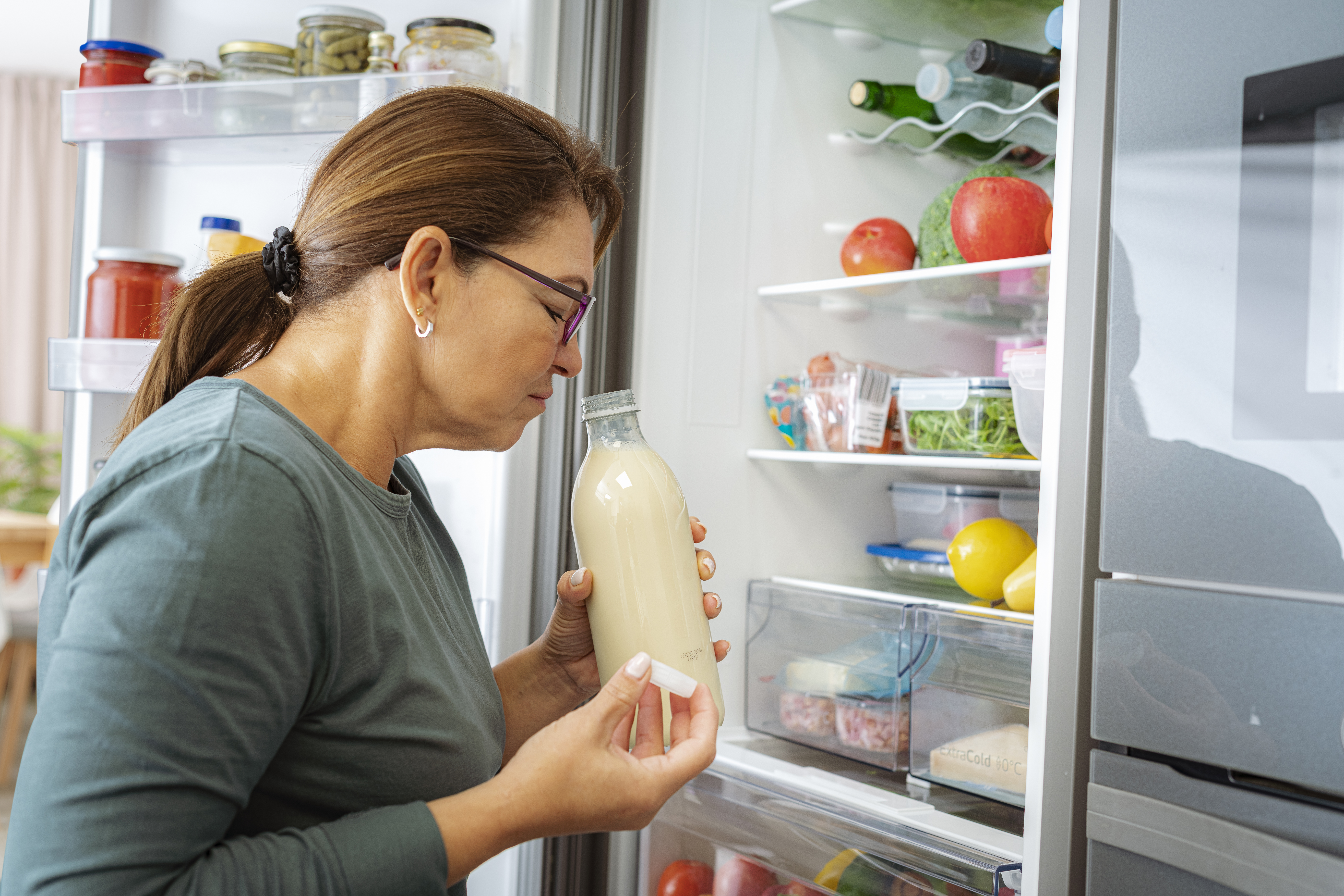
If you’ve found your fresh groceries going bad in just a day or two (and long before the expiration date), you know the frustration of a malfunctioning fridge. If your food is spoiling prematurely and without explanation, your refrigerator and freezer are failing to stay as cold as they should, which is often a sign that you have a Freon leak in your refrigerator.
While it may seem counterintuitive, low refrigerant sometimes leads to frost or excess ice. This is especially true around the evaporator coils. This means there’s not enough Freon to absorb any hot air present, which leads to ice buildup. If parts of your freezer are covered in a thick layer of frost while the rest of the unit feels warm, a Freon leak could be affecting internal airflow.
A bubbling or hissing sound coming from the back of your refrigerator is a telltale sign of a leak. These sounds happen when refrigerant escapes under pressure. While not every hiss means there’s a leak, it’s something to take seriously, especially when combined with other symptoms.
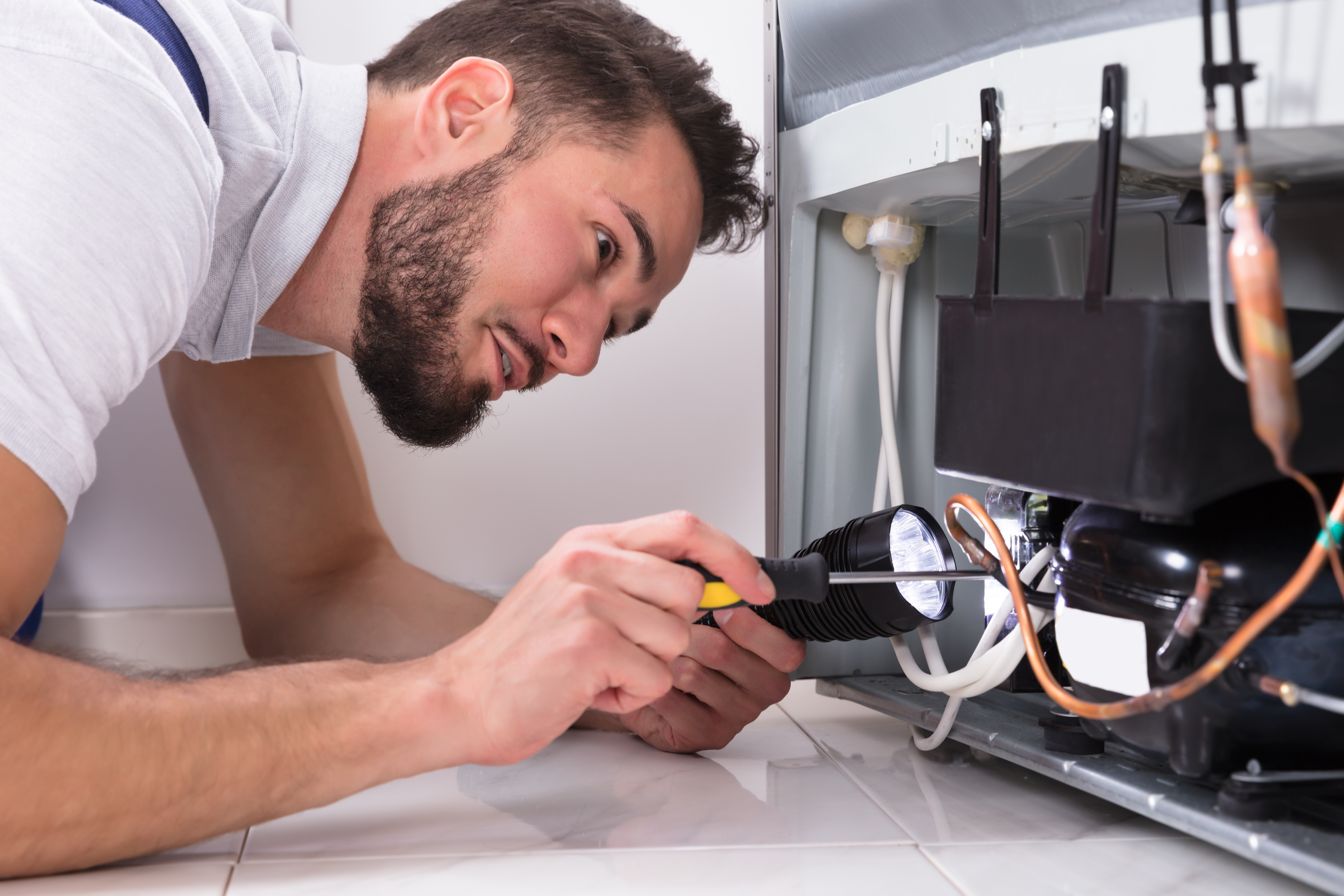
If you’ve seen any of the above signs or suspect a refrigerant issue, it’s time to consult an expert. A qualified appliance repair pro near you can accurately diagnose the issue, perform necessary leak tests, and ensure your fridge is safe and efficient. You should definitely call a pro if you smell chemical odors, see oil residue, or hear unusual hissing sounds.
You should never attempt fixing a refrigerant leak in your refrigerator yourself. Freon is a hazardous chemical that only the pros are experienced enough to handle safely. Fixing Freon requires specialized tools, training, and EPA certification to repair leaks or recharge the refrigerant. DIY attempts can lead to serious safety hazards, further damage to your refrigerator, and, potentially, legal trouble.
Preventing refrigerant leaks in your fridge with proper maintenance:
Schedule regular inspections and tune-ups by a certified appliance technician to catch minor issues before they become major repairs.
Avoid overloading your fridge, which can put extra pressure on the cooling system.
When cleaning or moving your refrigerator, take care not to bump or damage the coils or refrigerant lines.
It’s also a good idea to monitor your refrigerator’s performance over time. If you notice subtle changes like inconsistent temperatures or strange odors, don’t wait—early intervention can often prevent more serious problems.
The cost to repair a refrigerator with a Freon leak is $150 to $1,000, depending on the severity of the leak, the model of your refrigerator, and local labor rates. This cost range includes diagnosing the leak, repairing or replacing damaged components, and recharging the refrigerant.
If your appliance is older or the leak is extensive, replacing the fridge will be more cost-effective than repairing it. Be sure to get multiple quotes from reputable professionals to compare pricing and ensure you're getting the best value.
From average costs to expert advice, get all the answers you need to get your job done.

Depending on repair needs and machine age and type, the cost to replace a heating element in a dryer can vary. Learn the average repair costs.
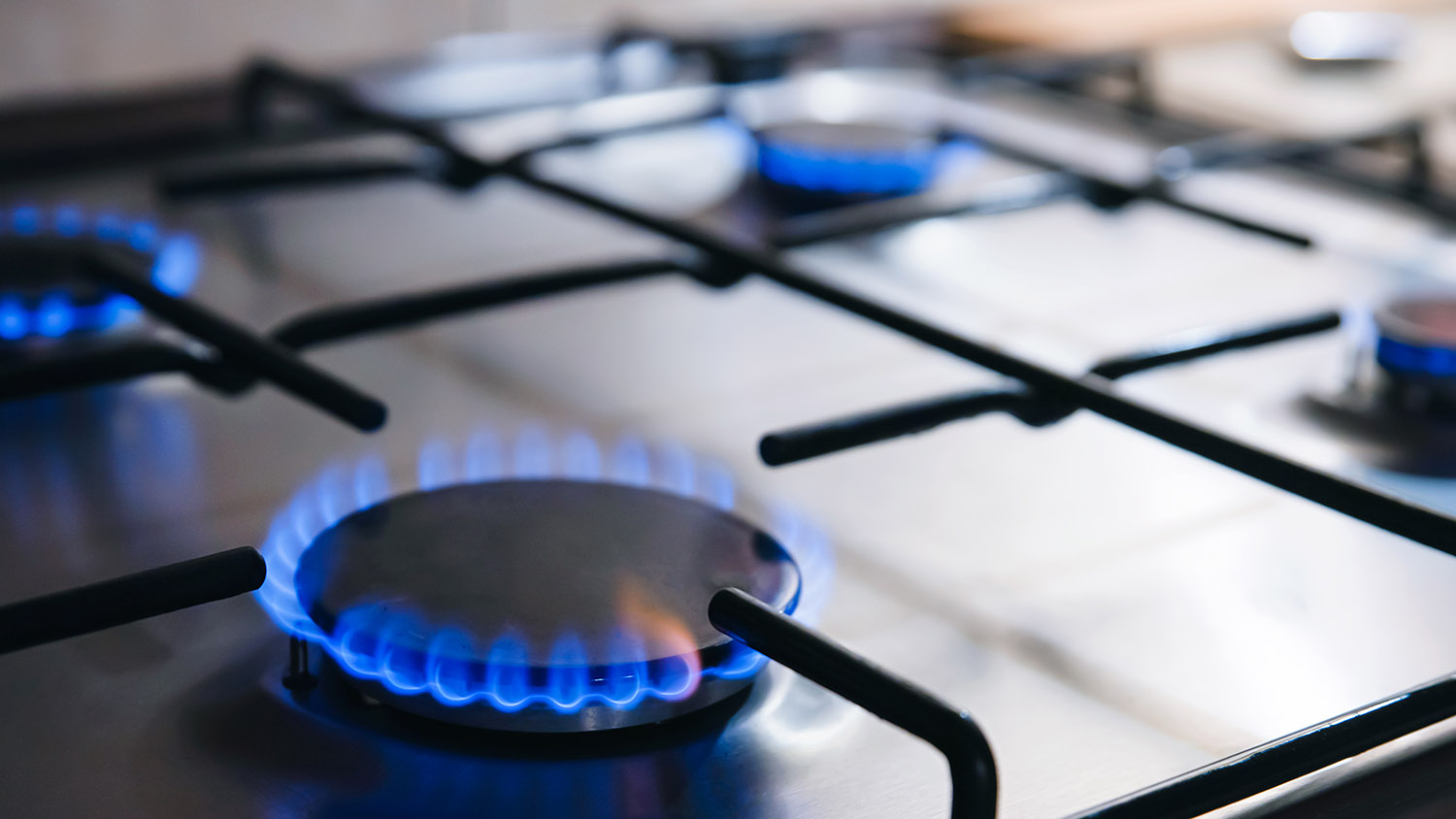
Get a clear estimate for stove repair costs. Learn what impacts pricing, compare repair vs. replacement, and find tips to save on your next stove repair.
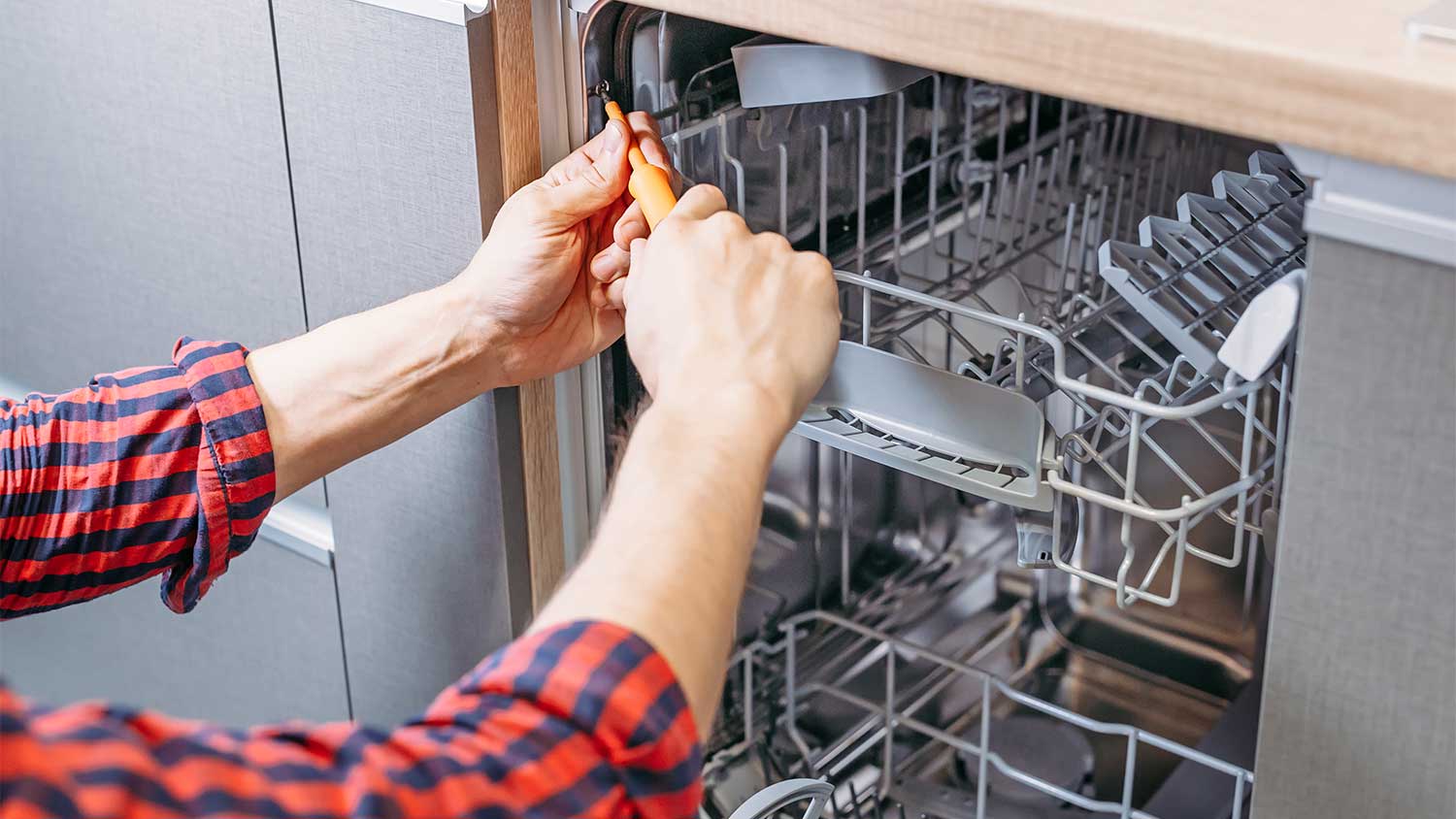
Get expert insights on dishwasher repair cost, including average prices, key cost factors, and tips to save money on repairs.

Finding the right pro to install your new washer and dryer will help the machines work better, last longer, and ensure everything is connected correctly.
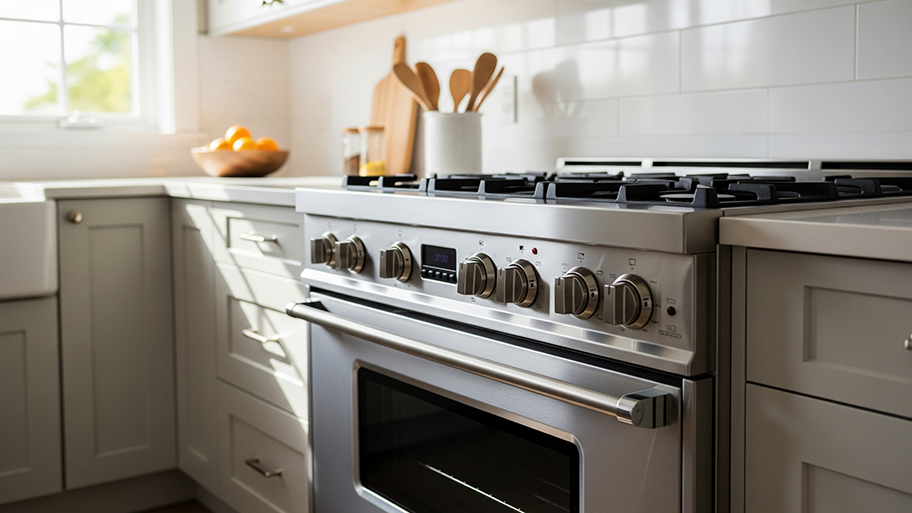
Understand the top reasons why your oven smells like gas, the severity of the issue, and how to address the causes before calling a pro.

Discover what your need to know about DIY or professional pellet stove installation with or without an existing fireplace.